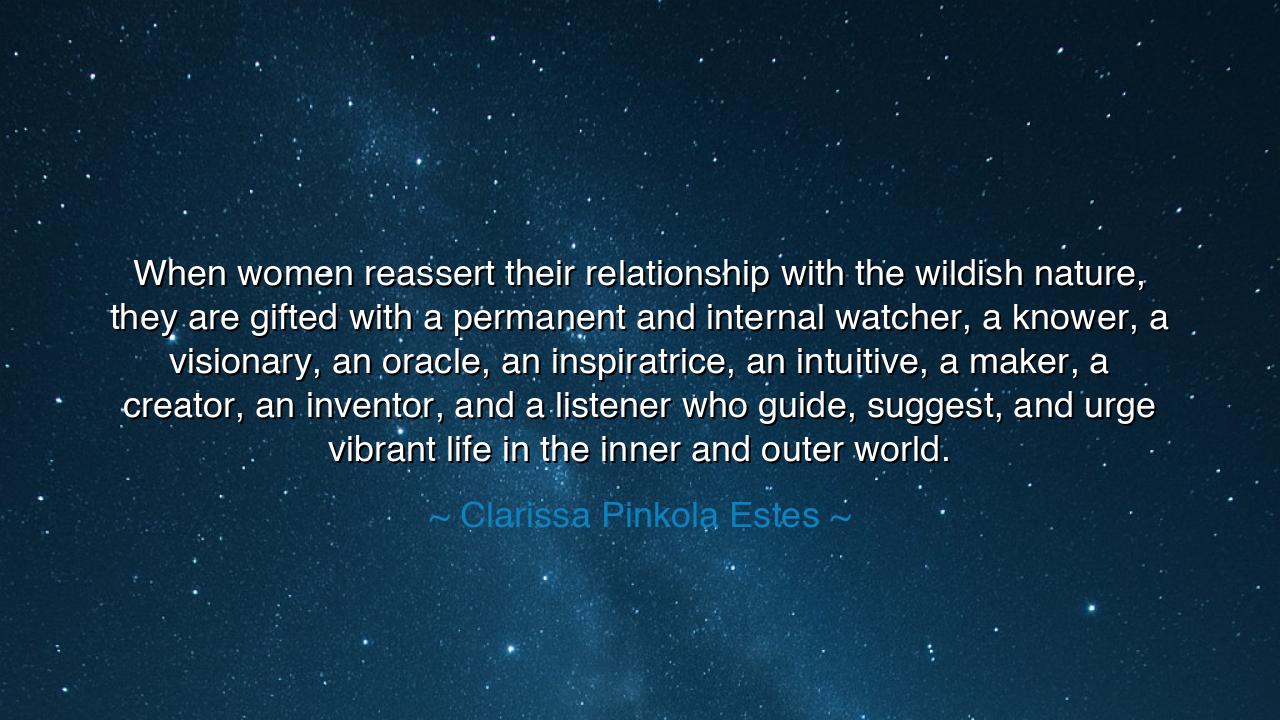
When women reassert their relationship with the wildish nature
When women reassert their relationship with the wildish nature, they are gifted with a permanent and internal watcher, a knower, a visionary, an oracle, an inspiratrice, an intuitive, a maker, a creator, an inventor, and a listener who guide, suggest, and urge vibrant life in the inner and outer world.






Hear the voice of Clarissa Pinkola Estés, who speaks as one calling daughters of the earth back to their forgotten inheritance: “When women reassert their relationship with the wildish nature, they are gifted with a permanent and internal watcher, a knower, a visionary, an oracle, an inspiratrice, an intuitive, a maker, a creator, an inventor, and a listener who guide, suggest, and urge vibrant life in the inner and outer world.” This saying is no small counsel, but a summons to return to the wildish nature that is older than law, older than stone, older even than memory itself.
The relationship with the wildish nature is the bond between woman and the primal, untamed spirit of life—the rhythms of the moon, the silence of forests, the wisdom of rivers, and the untamed breath of the wind. Long has civilization sought to bury this bond under iron, under order, under silence. Yet Estés reminds us: when woman rediscovers this kinship, she does not merely remember—she awakens.
From such awakening flows the watcher, the knower, the visionary. These are not gifts granted from without, but voices long hidden within, voices that guide and guard the path of vibrant life. To embrace the wildish nature is to rejoin the chorus of the earth, to see with the eye of the oracle and to create with the hand of the maker. It is to remember that intuition is not weakness, but a torch that burns within, lighting both the inner and outer world.
Estés proclaims that woman, in this reassertion, becomes an inspiratrice, a creator, an inventor. These titles are not ornaments but powers, reminding future generations that to silence the wild within is to silence the wellspring of life itself. Only in honoring this connection does woman stand in her fullness, not as vessel or shadow, but as fire, as fountain, as force of creation.
Thus let it be remembered: to deny the wildish nature is to walk in exile from one’s deepest self. But to embrace it is to live in vibrant harmony, guided by the watcher within, urged onward by the ancient voices of intuition and vision. This is not mere poetry but prophecy: that those who reclaim their bond with the wild will rise not as broken fragments, but as whole beings, makers of destiny, keepers of sacred fire.






AAdministratorAdministrator
Welcome, honored guests. Please leave a comment, we will respond soon